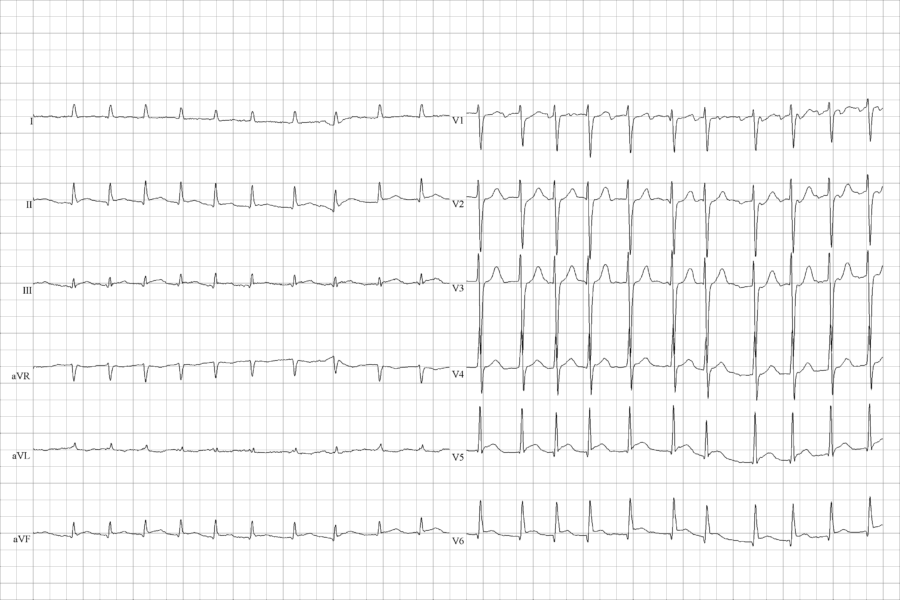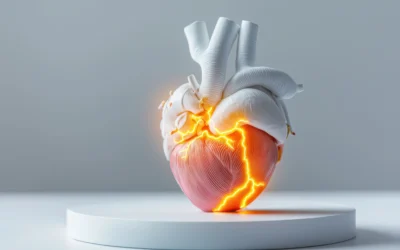The rhythm of the heart is its signature tune – steady, unwavering, and life-giving. However, sometimes this rhythm can go awry, leading to conditions like atrial tachycardia. This guide aims to offer comprehensive insights into this condition, ensuring a better understanding for both patients and caregivers.
Definition and Overview
Atrial tachycardia is an abnormal heart rhythm characterized by rapid and irregular beating originating in the atria (the heart’s upper chambers). Specifically, in this condition, the heart rate exceeds the normal range, often reaching more than 100 beats per minute (bpm) in adults.
Symptoms of Atrial Tachycardia
The manifestation of atrial tachycardia varies from one individual to another. Some might remain asymptomatic, while others could experience:
- Palpitations or a rapid heartbeat
- Breathlessness
- Fatigue or weakness
- Dizziness or lightheadedness
- Fainting (syncope)
- Chest pain or discomfort
- Anxiety
Causes of Atrial Tachycardia
The heart’s rhythm is orchestrated by electrical impulses. Atrial tachycardia occurs when a fault in the heart’s electrical system prompts the atria to beat faster than normal. Potential causes include:
- Heart-related conditions: These can be structural abnormalities, previous heart surgery, or heart diseases such as hypertension.
- Electrolyte imbalances: Sodium, potassium, and calcium imbalances can affect the heart’s electrical impulses.
- Lung diseases: Conditions like pneumonia or chronic obstructive pulmonary disease (COPD) can influence heart rhythms.
- Excessive caffeine or nicotine consumption
- Certain medications and drugs
Risk Factors
Factors that may elevate the risk of atrial tachycardia include:
- Pre-existing heart conditions or a history of heart surgeries.
- Chronic lung diseases.
- Regular consumption of high caffeine products.
- Substance abuse.
- Genetic predisposition or a family history of arrhythmias.
Prevention: How to Avoid Atrial Tachycardia
Mitigating the risk of atrial tachycardia involves a combination of lifestyle changes and medical precautions:
- Healthy Lifestyle Choices: Adopt a balanced diet, regular exercise routine, and manage stress through relaxation techniques.
- Limit Stimulants: Minimize caffeine and nicotine intake.
- Regular Health Screenings: Regular check-ups can detect potential heart and lung problems early.
- Medication Review: Ensure all medications, including over-the-counter ones, are heart-friendly.
When to See a Doctor
Experiencing consistent or severe symptoms indicative of atrial tachycardia necessitates immediate medical attention. Timely diagnosis and treatment can help prevent complications, ensuring better long-term health outcomes.
Additional Information
It’s crucial to understand that atrial tachycardia is just one form of arrhythmia or irregular heart rhythm. There are other types, like atrial fibrillation or ventricular tachycardia, each with its own characteristics.
Prompt treatment is essential, not just to alleviate symptoms but also to prevent potential complications. If left untreated, atrial tachycardia could lead to heart failure, stroke, or other heart-related complications.
The primary diagnostic tools for atrial tachycardia include an electrocardiogram (ECG) and Holter monitoring. The treatment might involve medications, catheter ablation, or other medical interventions.
Atrial tachycardia, while potentially unsettling, can be managed effectively with timely medical intervention and lifestyle adjustments. Being aware of its symptoms and risk factors enables prompt action, ensuring heart health remains uncompromised.









